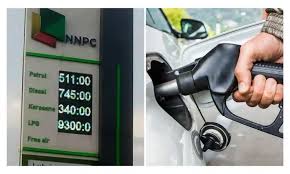As the state oil company NNPC tries to bridge the difference between set pump prices and foreign fuel costs, Nigeria’s debt to gasoline suppliers has crossed $6 billion, more than doubling since early April, according to six industry sources.
Pump prices tripled when Nigeria’s President Bola Tinubu said last year that costly gasoline subsidies would no longer be provide
The state oil corporation NNPC soon clamped down on pump prices as residents became irritated with the escalating cost of living.
The cap and the collapse of the naira made it possible for the subsidy to reappear. The administration of Tinubu anticipates that this year’s subsidy will cost at least $3.7 billion.
For years, critics of the subsidies, including NGOs and government officials, have denounced it as inefficient and dishonest.
Nonetheless, given the current cost of living problem and the fact that they receive minimal government services, Nigerians have long considered inexpensive petroleum to be a right.
Deadly demonstrations this week caused Kenya’s indebted government to abandon planned tax increases, obstructing attempts elsewhere to further hurt citizens already hurting from rising prices.
Laptops 1000Senegal’s energy subsidy bill is still substantial, accounting for 3.3% of GDP, and Angola and Egypt are also attempting to reduce subsidies to strengthen their economies.
When almost $3 billion in late fuel payments were made this year, NNPC had financial difficulties.
Based on traders’ reports, the corporation has not paid $4 billion to $5 billion for imports made in January.
Under the conditions of the contract, NNPC must make payment 90 days after delivery.
Laptops 1000“The only reason traders are putting up with it is the $250,000 a month (per cargo) for late payment compensation,” a source in the trade claimed.
The sources claimed that when they reached their self-imposed debt exposure limitations to Nigeria, at least two suppliers stopped participating in recent tenders.
This means that they won’t provide any more gasoline until they are paid.




















